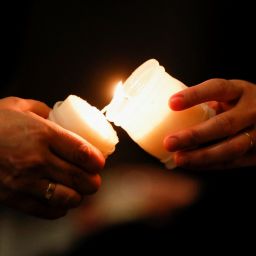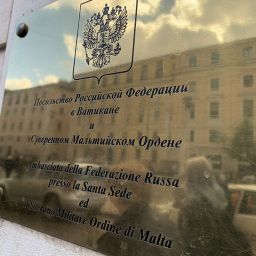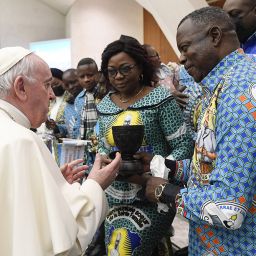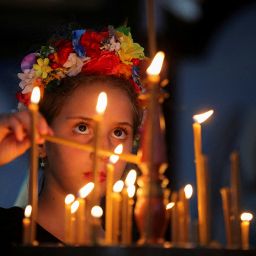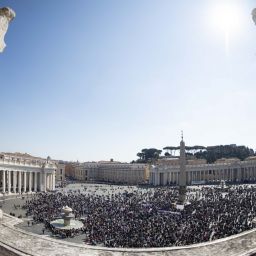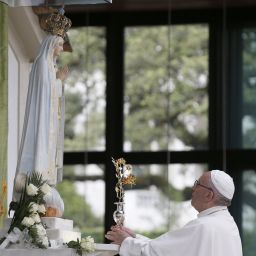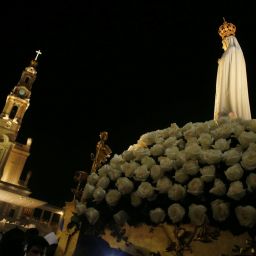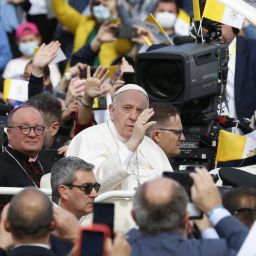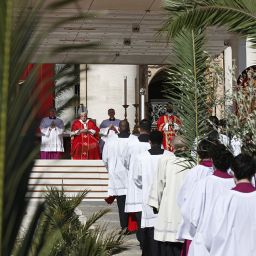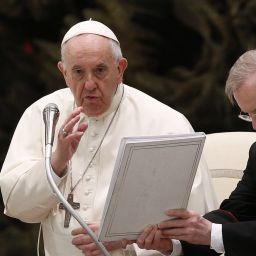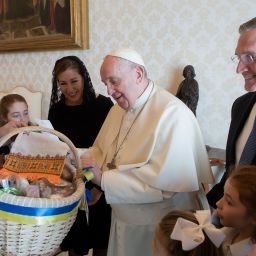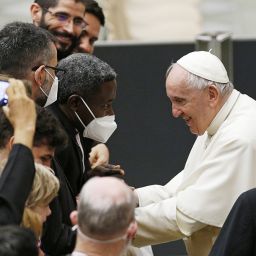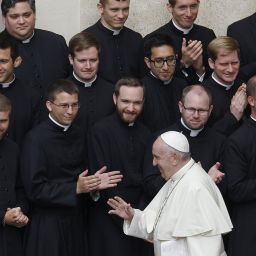By Carol Glatz
Catholic News Service
VATICAN CITY — Great spiritual traditions and mature critical thinking enable humanity to go beyond ethnicities, clans, and cliques, which recognize only those who are similar and reject those who are different, Pope Leo XIV said.
“We need an extensive ‘covenant of humanity,’ founded not on power but on care; not on profit but on gift; not on suspicion but on trust,” he told participants in a conference on human fraternity.
“Care, gift, and trust are not virtues to be practiced only in one’s spare time: They are pillars of an economy that does not kill, but deepens and broadens participation in life,” he said Sept. 12.
Organized by the Vatican’s Fratelli Tutti Foundation, St. Peter’s Basilica, and others, the Sept. 12-13 conference brought entrepreneurs, economists, activists, scholars, social workers, students, athletes, and religious leaders to Rome and the Vatican for a series of roundtable discussions aimed at strengthening solidarity and peace with concrete proposals.
The event was to close with a drone light show and a free concert in St. Peter’s Square featuring Andrea Bocelli, Pharrell Williams, John Legend, Jennifer Hudson, Karol G, and others.
Alternating speaking Italian and English, the pope said the fact that the first fraternal relationship, the one between Cain and Abel, became conflictual “should not lead us to conclude that it has always been this way.”
“No matter how ancient or widespread, Cain’s violence cannot be tolerated as ‘normal,'” he said.
On the contrary, the pope said, God does not take revenge on Cain for Abel, and he reveals the norm with his question to the guilty party, “Where is your brother?”
“It is in this question that we find our vocation, the rule and measure of justice,” he said, and “today more than ever, we must make this question our own as a principle of reconciliation.”
This question must be “internalized” by everyone, he said, so that individuals ask themselves things like, “Where are you in the ‘business’ of wars that: shatter the lives of young people forced to take up arms; target defenseless civilians, children, women, and elderly people; devastate cities, the countryside, and entire ecosystems, leaving only rubble and pain in their wake?”
“Brother, sister, where are you among the migrants who are despised, imprisoned, and rejected, among those who seek salvation and hope but find walls and indifference?” he asked.
Where do people stand when it comes to the poor being “blamed for their poverty, forgotten and discarded, in a world that values profit more than people?” and “where are you in a hyper-connected life where loneliness corrodes social bonds and makes us strangers even to ourselves?” he asked.
“The answer cannot be silence,” Pope Leo said. “You are the answer, with your presence, your commitment, and your courage.”
The answer to each question of injustice is to choose “a different direction of life, growth, and development” that recognizes the other as a brother or sister and frees one from “the logic of forming relationships only out of self-interest.”
The best guides for forming fraternal relationships can be found in “great spiritual traditions and the maturation of critical thinking,” he said, which “enable us to go beyond blood or ethnic ties, beyond those kinships that recognize only those who are similar and reject those who are different.”
In fact, “it is interesting that in the Bible, as revealed by scientific exegesis, it is the most recent and mature texts that narrate a fraternity that transcends the ethnic boundaries of God’s people and is founded on a common humanity,” he said.
“The stories of creation and the genealogies bear witness that all peoples, even enemies, have the same origin, and the Earth, with its goods, is for everyone, not just for some,” he said.
Fraternity is about “closeness,” he said, and for those who believe in God, it means recognizing “the very image of God in the face of the poor, the refugee, and even the adversary.”
The pope urged his audience to “identify local and international ways of developing new forms of social charity, alliances between different areas of knowledge, and solidarity between generations.”
Initiatives, he said, “should be community-based approaches that also include the poor, not as recipients of aid, but as subjects of discernment and discourse.”
“Continue to nurture the spirituality of fraternity through culture, working relationships, and diplomatic action,” he added, and remember Jesus’ commandment to love one another.
Pope Leo thanked the participants for their efforts, especially the Nobel Prize winners present at the audience, “for drafting the Declaration on Human Fraternity of 10 June 2023, and for the witness they give in international forums.”
Cutline for featured image: Pope Leo XIV poses for a photo with participants in a conference on human fraternity in the Clementine Hall at the Vatican Sept. 12, 2025. Seated with the pope, from left, are Cardinal Mauro Gambetti, archpriest of St. Peter’s Basilica; Franciscan Sister of the Eucharist Raffaella Petrini, president of the office governing Vatican City State; and Paolo Ruffini, prefect of the Dicastery for Communication. (CNS photo/Vatican Media)

